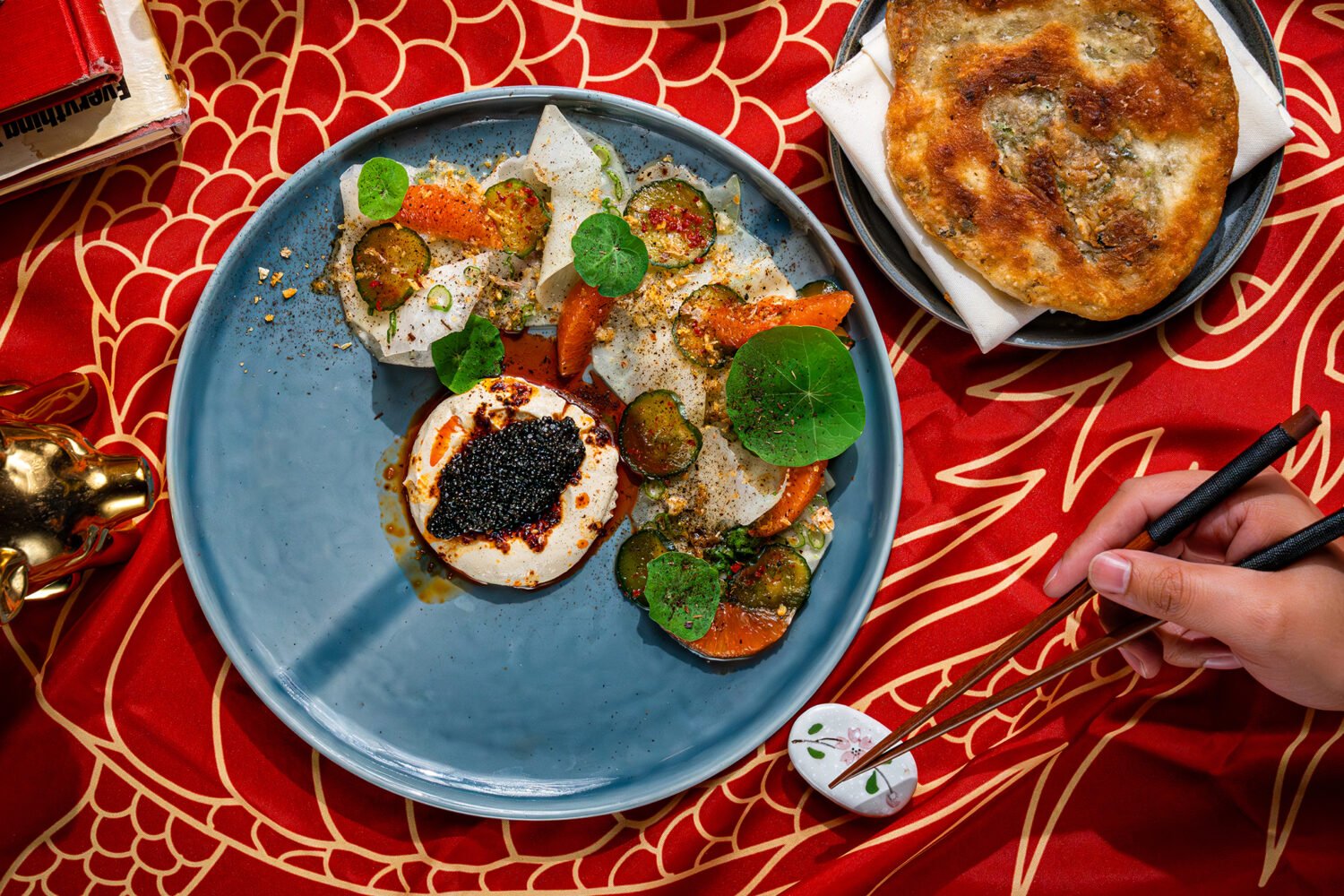No. 7: Inn at Little Washington
“I don’t believe less is more,” the novelist Stanley Elkin said. “I believe that less is less, fat fat, thin thin, and enough is enough.” Patrick O’Connell is Elkin’s kind of maximalist. In an age when clean-lined dining rooms are the norm—and a way to keep soaring prices more manageable—O’Connell’s countrified pleasure palace piles extravagance atop extravagance, from the tasseled linen canopies in the terrace room to the gold-leafed ceiling and 17th-century oak floor in the living room to the plates hand-painted with 24-karat gold.
This devotion to excess is matched by rigorous execution—which explains why the poppy-seed rolls are the best breads you can find in the region—and a commitment to procuring the best products money can buy, which explains why the tuna, a fish whose ubiquity has rendered it often tasteless, is the freshest and most pristine you can find. O’Connell’s version of surf and turf—a thick, ruby-colored filet of seared tuna topped with a slab of seared foie gras—is a precis of the house style, a dish of such richness and luxury that it makes most elegant restaurants look flinty by comparison.
The sumptuousness never stops, but the Inn these days seems more institution than restaurant. The kitchen under O’Connell’s eye rarely errs, but it rarely risks—and for all the technical perfection, at times you might find yourself admiring more than enjoying a course. And in an age when dining out has become an interactive adventure, a playful conversation between chef and diner, dinner at the Inn can feel more like a scripted performance, right down to the staff’s banter.
It’s not for everybody, nor was it ever meant to be.













